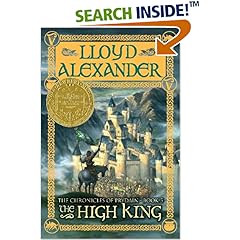Despite the fact that it is the only post on my old blog that got secular hate mail (I usually only get the other kind), I’m posting an old entry on the Buffy the Vampire Slayer show, below. The reason is that I’ve been listening to the music to Once More With Feeling and realized I had never quite understood how evil the show portrays Willow as being. I used to think her descent into homocidal mania at the end of the season was a leap, but not any more.
I can’t believe that homosexual activists didn’t come out against the episode and the season. They go gaga over the lesbian love song, “I’m under your spell.” This is sung right after Willow says jokingly “Do I have to fight to keep you? ‘Cause I’m not large with the butch.”
But the whole point about this pansexual paean is that Tara is literally under Willow’s spell. Willow made Tara forget their argument. She is, in fact, “large with the butch” in manipulating Tara to make her a sidekick.
When Tara discovers this, the first words of her song are “I’m under your spell.” But this time the true meaning is revealed. Tara came from a brutal patriarchical home that manipulated her through lies to get her to stay there. She actually states this in her song,
I’m under your spell.
God, how can this be?
Playing with my memory.
You know I’ve been through hell.
Willow, don’t you see?
There’ll be nothing left of me.
You made me believe.
Willow is the new masculine bully making her believe lies.
This whole issue explains rather well why Willow finally goes homicidal after Tara dies. She has no more sidekick and that brings her face to face with the fact that she’s been Buffy’s sidekick. She says it in a masculine way:
BUFFY: Are we really gonna do this? [i.e. fight]
WILLOW: Come on! This is a huge deal for me. Six years as a sideman, now I get to be the Slayer.
Sideman is not a normal word, and it emphasizes a point.
All this is to say: there is not much healthy portrayed in this relationship (though for the show, that is tantamount to a statement that all relationships are equal).
Buffy, Porn, and the triumph of American Political Ideology over pagan pansexualism
Someone recently sent me an email about the recent column in Christianity Today about Buffy the Vampire Slayer. The subject line was “overdosing on Buffy,” and he pointed me here.
No overdose. I’ve downloaded half the content or so to my hard drive for further study. I especially loved “Never Hurt the Feelings of a Brutal Killer”: Spike and the Underground Man both because of the analysis and the fact that most of the evidence cited had stuck in my mind as well as part of William the Bloody’s complex psychological profile.
Incidentally, there is another column at Razormouth that serves as a good entryway to the CT editorial.
Since the final episode is airing this Tuesday, it might be appropriate to write something about the show in general. Despite my addiction to–oops!–appreciation of the show, I want to write about a major problem with it.
As anyone who knows me might guess, I think the the slayerverse is both an entertaining and sometimes awesome creation. As a fan of modern Faerie Queen myths along the lines of the stories of Tim Powers, James Blaylock, and Emma Bull’s The War of the Oaks, I find Buffy and the Angel spin-off to be uniquely compelling. As one raised on Lewis, Tolkien, Lloyd Allexander, and Madeleine L’Engle’s children’s fantasies, a world in which a child is the guardian of humanity in a secret war is simply an irresistable concept. But it is truly a sinful show in some ways–even moreso than many others in an age of decadent television. It is a strange mixture of redemption and depravity and it takes some discrimination for Christian viewing and (in the case of some episodes) a quick finger on the fast-forward button. The “most-anti-family-program-in-the-universe” crowd needs to be given its due.
The occult is one possible criterion for such a ranking, though I might argue at some point in the future that it is not as bad as it seems and fits well in the C. S. Lewis / J. R. R. Tolkien genre. But the most horrifying aspect of the show is the sexual immorality. For the most part this is on the level of “Friends” and one could argue that Buffy herself is “conservative” in a pagan sort of way. It never seems to have occurred to her that men are out of her reach if she’s not married to them, but neither does she engage in casual sex.
What makes the show pioneeringly perverse is the portrayal of homosexuality. The simple fact that it promotes homosexual practice as legitimate is bad enough, and the fact that it portrays it is worse. But there is more to what goes on in the slayerverse that deserves some comment. The show is strangely regressive by the standards of the same-sex political machine.
In strange tension with itself, [1] the show simply caters to soft- and hardporn conventions that have nothing to do with a generic positive attitude to homosexuality. And [2] it initially shows homosexual perversity having nothing to do with some set-in-stone “orientation” or identity.
1. SPREAD BENEATH MY WILLOW TREE
When I say “portray,” I really mean portray. Willow and Kennedy getting hot and heavy in bed (with clothes on so this can all be justified as perfectly acceptable for 8pm/7pm network viewing) is the, um, climax of an increasing number of scenes of romantic affection, beginning with Willow and Tara. (Buffyworld has video captures but I haven’t looked to see what they caught and don’t plan to.)
TARA: Well, it’s, it’s not really so much about hating the men.
WILLOW: We’re more centered around the … (smirking) girl on girl action. (Tara grinning)
ANYA: And men really like to watch that kind of stuff, don’t they? Men like Xander.
…
WILLOW: Well, Xander is a guy, so … (Tara looking confused) it’s kinda not the surprise that he likes to watch … girls … Why are we talking about this?
ANYA: (annoyed) We’re comforting me!
TARA: Well, I-I guess it’s … natural for guys to be interested in-
ANYA: God! What kind of lesbians are you?! If you love men so much, go love men! (Episode #118, “Entropy”).
Duh, Lesbianism is one of the staples of soft- and hardcore pornography. Male homosexuality is not nearly so prevalent (though, arguably, much of it ought to be called homosexual–with a woman used in the context of any number of men to heterosexualize the experience by her token presence). In fact, male homosexuality is quite often mocked (at least by the high school male viewers) while female homosexuality is glamorized.
This is exactly how the show treats male and female homosexuality respectively. Male homosexual attraction is restricted to villains–geeky, ridiculous villians. Thus, Episode #119, “Seeing Red”:
Cut to: exterior police station. A car with its siren wailing and lights flashing pulls up and stops. The driver and his partner get out, open the rear doors and take out Andrew and Jonathan, both handcuffed. The cops begin leading them inside.
JONATHAN: (furious) Jet packs. You jerks were setting me up to take the fall.
ANDREW: (upset) He left me. He flew away and left me.
They enter the police station, go down some steps and into a lobby area. Various cops and handcuffed prisoners are moving about, etc. Andrew and Jonathan pause and stand there looking around. Andrew is crying.
JONATHAN: Oh god. The Big House.
AUDREW: (crying) How could he do this to me? He promised we’d be together, but … he was just using me. He never really loved- (catching himself) …hanging out with us.
The cops lead them over to a bench and sit them down.
ANDREW: You think he’ll come back for us? I mean … he wouldn’t just take off, would he?
Jonathan gives him a look of contempt.
The writers for Buffy the Vampire Slayer are as aware of this as anyone. They actually mock it by having Andrew the in-the-closet homosexual videotaping the household, focusing his camera on curtains oblivious to the fact that Willow and Kennedy are necking on the couch.
Through the camera lens, show Andrew entering the living room. Willow and Kennedy are sitting on the sofa, kissing.
ANDREW
Hey, here’s something I think you’re going to be interested in, gentle viewers. (zooms in on the window behind the sofa) Look at the fine work Xander did on that replacing that window sash. You can’t even tell it’s new, it blends in so well. He’s extraordinary (Episode #137 “Storyteller”).
Andrew is the butt of the joke, of course. More interested in the window as Xander’s handiwork than the Lesbian necking scene in front of it. The show at once disses a latent male homosexual and points out the thrill of viewing Lesbianism. As porn with clothes, the logic of the show is completely consistent. As some sort of promotion of same-sex relationships in general, the Slayerverse makes no sense at all.
2. “FOLLOW YOUR HEART” VS. “GAY (1999-PRESENT)”
Beginning in Season 4 (“the college years”), the Buffy’s best friend Willow parted company with her boyfriend, Oz, for various slayer-type reasons (i.e. being a werewolf, being unable to stay faithful when in a wolf state in proximity to a she-were, etc.). While pursuing wiccan knowledge, she befriends Tara. As their friendship blossoms, it becomes clear that feelings are strong between them. When Oz returns having brought his animal urges (literally) under controll, Willow suddenly finds herself in a conflict because it is obvious that Tara is threatened by the possibility that she and Oz might resume their relationship.
WILLOW: No, there’s “woo” and, and “hoo.” But there’s “uh-oh,” and… “why now?” And… it’s complicated.
BUFFY: Why complicated?
WILLOW: (sighs, steels herself) It’s complicated… because of Tara.
BUFFY: (frowns) You mean Tara has a crush on Oz? No.
(The clue-by-four hits Buffy.)
BUFFY: Oh!
(Willow gives a nervous smile.)
(Buffy stands up.)
BUFFY: Oh. Um… well… that’s great. You know, I mean, I think Tara’s a, a really great girl, Will.
WILLOW: She is. And… there’s something between us. It-it wasn’t something I was looking for. It’s just powerful. And it’s totally different from what Oz and I have.
BUFFY: Well, there you go, I mean, you know, you have to – you have to follow your heart, Will. And that’s what’s important, Will.
WILLOW: Why do you keep saying my name like that?
BUFFY: (with false cheer) Like what, Will?
WILLOW: (sits up) Are you freaked?
BUFFY: What? No, Will, d- (stops herself, sighs) No. (Sits on bed) No, absolutely no to that question.
(Willow looks skeptical.)
BUFFY: I’m glad you told me. What did you say to Oz?
WILLOW: I was gonna tell him … but then we started hanging out, and … I could just feel everything coming back.
(Buffy looks sympathetic.)
WILLOW: He’s Oz, you know?
BUFFY: Yeah. I know.
WILLOW: I don’t wanna hurt anyone, Buffy.
BUFFY: No matter what, somebody’s gonna get hurt. And the important thing is, you just have to be honest, or it’s gonna be a lot worse. (Episode 75, “New Moon Rising”).
The show ends not with some decision on Willow’s part about some set “orientation,” but rather about who she is in love with.
WILLOW: Tara, I have to tell you…
TARA: No, I-I understand. You have to be with the person you l-love.
WILLOW: (smiles) I am.
Thankfully, the episode ends with Willow blowing out that camera so that nothing more is seen. Sadly, the death of Buffy’s mother becomes an excuse for them to kiss hard on camera and things degenerate from there (ergo the porn analysis above).
If there is still any doubt about the initial premise of Willow’s relationship with Tara, the same episode lays the groundwork by this conversation regarding the love between Oz and Willow:
RILEY: Oz and Willow.
BUFFY: Right. They had a rough breakup. Some stuff came up, and Oz pretty much bailed overnight. It left Will really devastated.
RILEY: I remember.
BUFFY: The thing is before that, they were doing great. I mean, she was totally dealing with Oz being a werewolf, it wasn’t even-
RILEY: Whoa, wait.
(They stop walking.)
RILEY: Oz is a werewolf, and Willow was dating him?!
BUFFY: Yes. Hence the high emotions.
RILEY: You’re kidding me. Gotta say I’m surprised. I didn’t think Willow was that kind of girl.
BUFFY: What kind of girl?
RILEY: Into dangerous guys. She seems smarter than that.
BUFFY: Oz is not dangerous. Something happened to him that wasn’t his fault. God, I never knew you were such a bigot. (Starts to walk away)
RILEY: (stopping her) Whoa, hey, how did we get to bigot? I’m just saying it’s a little weird to date someone who tries to eat you once a month.
BUFFY: Yeah, well love isn’t logical, Riley. It’s not like you can be Mister Joe Sensible about it all the time.
There is no question here of Willow having an attraction to werewolves in general. She happened to be in love with a man who was a werewolf. Obviously Tara’s case isn’t quite the same. Willow knew she was female, and that more than three days out of the month. Still, the parallels are obvious and look quite intentional. There simply is no political ideology of a set defined “orientation” which predetermines whom one may love.
A couple of previous episodes back up this point. In “The Wish” (Episode #43) Cordelia wishes unknowingly to a vengeance demon that Buffy had never come to Sunnydale. She is immediately whisked to an alternative world in which vampires reign supreme. In that parallel timeline, Cordelia fines that Willow has been turned into a vampire and is a polysexual dominatrix. Later, in “Dopplegangland” (Episode #50) Willow accidently summons this vampire-Willow into the real world. She manages to tranquilize her evil twin and wonders about the comparison:
Angel and Xander drag Evil Willow by the arms into the book cage.
Giles: (dumbfounded) It’s extraordinary.
Willow: (appalled) It’s horrible! That’s me as a vampire? (Angel closes the door) I’m so evil and… skanky. (aside to Buffy, worried) And I think I’m kinda gay.
Buffy: (reassuringly) Willow, just remember, a vampire’s personality has nothing to do with the person it was.
Angel: (without thinking) Well, actually… (gets a look from Buffy) That’s a good point.
It may well be that the writers had already decided that Willow was going to eventually become involved with a woman and think they are setting the stage here. But there is nothing about the vampire Willow that makes her a “Lesbian.” She is also in a sexual relationship with a vampire version of Xander even while she has skanky evil affairs with women. She simply doesn’t care.
The point here is not that any of this is good. It is simply that everything in the show up to a point simply showed Willow making an impulsive decision based on strong feelings about a person who was the same sex. There was no generic attraction to females at issue. Willow fell in love with Tara, that is all. It is perverse, but it was portrayed as a perverted friendship (with the perversion interpreted as a valid lifestyle choice as long as one was honest in following one’s heart).
From the beginning it is Tara who is self-conscious about what sort of relationship she wants with Willow. (Coincidentally, Tara comes from an abusive patriarchical family that uses deception to control the females of the clan. One has to ask, “If any Christian writer portrayed such a situation, would he not be cried down for hate speech?” The explanation for Tara’s orientation seems all too obvious and hardly PC.) Tara comes much closer to being the politically necessary “Lesbian.” This is actually spelled out for us. In episode #79, “Buffy vs. Dracula” Tara catches Willow all aflutter over the charming Dracula. When she asks, “You thought Dracula was sexy?”, Willow immediately backpedals and says he was “yuck.” It is obvious she is trying to make Tara feel better. But the issue comes up again in the couples first major argument.
WILLOW: No, I think you’re being pretty clear. This isn’t about the witchcraft. It’s about the other changes in my life.
TARA: I trust you. I just … (looks down) I don’t know where I’m gonna fit in … in your life when…
WILLOW: When … I change back? Yeah, this is a college thing, just a, a little experimentation before I get over the thrill and head back to boys’ town.
Pause.
WILLOW: You think that?
TARA: Should I?
WILLOW: I’m really sorry that I didn’t establish my lesbo street cred before I got into this relationship. You’re the only woman I’ve ever fallen in love with, so … how on earth could you ever take me seriously? (Episode #97, “Tough Love”)
Even though this scene is consistent with how Willow met Tara, already a new interpretation had been offered in the previous episode (#96 “Intervention”). There, Willow is identified as “recently gay” and “gay (1999-present).” The freedom of “follow your heart” is forgotten as the ideology of set homosexual identity gets imposed on the show–an ideology necessary if those who follow their hearts in same-sex relationships are going to win privileges from the state governments and federal government.
From that point on (unless I’ve missed something) Willow is consistently treated, and now regards herself as a female homosexual. She never again notices that a male is attractive. Despite her lifelong crush on Xander, her new “orientation” is said to mean that she is automatically over him. When she falls in love with a male, it is only because of his magic jacket and she immediately sets to work on a spell to turn him into a women. The change in direction in the show is positively jarring.
Needless to say, in the Bible, homosexual practice is a sin. That means it is also a temptation that one must resist. Thinking of it as a predetermined orientation which some have and others don’t is a good way to be caught off guard. While I’m not happy with either of the two perspectives presented in the show, it is much simpler to explain to people that they simply aren’t permitted to “follow their heart” wherever it may lead. Any monogamous spouse knows this is true.
Well, if the final episode doesn’t make me angry (which is what I will be if Spike and Buffy don’t get to live happily ever after), maybe I’ll write more positive stuff later. I do like the show and I do have a great deal of respect for the creative talent of Joss Whedon. I hope he comes up with a good spin-off concept. But I also hope it manages to leave out the things discussed above.
 I have a ton to do today so this must be quick. But I have to take a moment to express what a joy it is to suddenly discover the horror author, Richard Matheson (he’s wider than that but I’m going to read all his horror first if a I can). His novel, I Am Legend was just amazing. It was the kind of thing where you realize most of the vampire fiction you read before was completely second-hand and this was the source that inspired all those wannabe imitators.
I have a ton to do today so this must be quick. But I have to take a moment to express what a joy it is to suddenly discover the horror author, Richard Matheson (he’s wider than that but I’m going to read all his horror first if a I can). His novel, I Am Legend was just amazing. It was the kind of thing where you realize most of the vampire fiction you read before was completely second-hand and this was the source that inspired all those wannabe imitators. I read this novella because I had seen the movie I Am Legend and had been incredibly impressed with it. One person told me that it wasn’t as good as the book, but I have to assume that is because he wanted the movie to be a copy of the book. It isn’t. It is very much indebted to the book but it is a different story. In fact, one of the great experiences involved in reading the book second was realizing what brilliant decisions the writers had made to use different situations and actions and history to get some of the same emotional stress.
I read this novella because I had seen the movie I Am Legend and had been incredibly impressed with it. One person told me that it wasn’t as good as the book, but I have to assume that is because he wanted the movie to be a copy of the book. It isn’t. It is very much indebted to the book but it is a different story. In fact, one of the great experiences involved in reading the book second was realizing what brilliant decisions the writers had made to use different situations and actions and history to get some of the same emotional stress.





